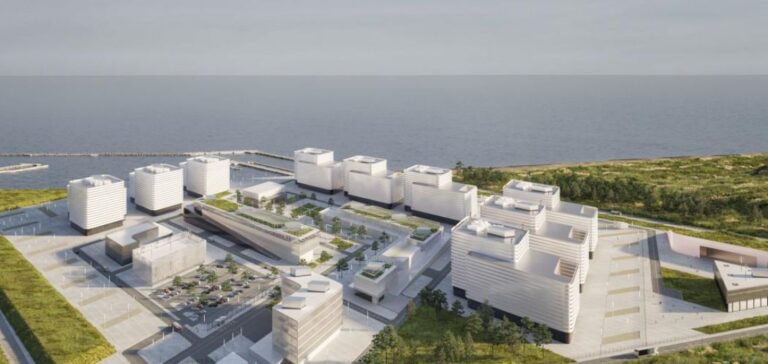Kärnfull Next, a company specialising in the development of small modular reactor (SMR) projects, has signed cooperation agreements with landowners to conduct feasibility studies on two sites located in the municipality of Karlshamn, in southern Sweden. These studies are part of the Re:Firm South programme, an initiative aimed at increasing decarbonised and reliable energy production in the southern region. The sites under evaluation are in Elleholm and Guö-Köpagårda, in Blekinge County.
A strategic analysis for SMR deployment
The studies will include technical, environmental, societal, and economic assessments of the two properties. This decision is partly based on in-depth analyses carried out by the Region Blekinge development agency in collaboration with Kärnfull Next. According to the study, Karlshamn is a promising site for new nuclear energy production projects. Other SMR projects are also underway in the municipalities of Valdemarsvik, Motala, and Nyköping, as part of the Re:Firm South programme.
Karlshamn has emerged as a strategic location for nuclear energy production in Sweden, notably due to funding granted by the Swedish Environmental Protection Agency to explore the possibilities of nuclear energy production in the region. Region Blekinge’s analysis has ranked Karlshamn among the most promising locations in the country for SMR deployment. Carl Berglöf, Sweden’s national coordinator for new nuclear projects, recently stated that Karlshamn could be among the top ten sites for future reactor projects in the country.
Karlshamn’s advantages for SMR development
John Eliasson, Head of Business Development at Kärnfull Next, highlighted several strategic advantages of Karlshamn. The existing energy infrastructure, grid connectivity, and the regional industry’s need for a stable power supply are factors that make the sites in Elleholm and Guö-Köpagårda particularly relevant for further analysis. The company is conducting this process in close cooperation with Karlshamn Municipality and other stakeholders to ensure the project’s alignment with both local and national energy objectives.
Kärnfull Next intends to further explore the opportunities that SMRs offer in strengthening the stable energy supply in the Blekinge region. As part of this strategy, the company envisions Karlshamn playing a key role in Sweden’s future fossil-free energy system.
An industrial and economic approach
In March 2022, Kärnfull Next signed a memorandum of understanding with GE Hitachi Nuclear Energy for the deployment of the BWRX-300 reactor in Sweden. This collaboration is part of a long-term development strategy to diversify nuclear power generation sources and optimise investments in this technology.
Since 2022, Kärnfull Next has been conducting site selection and feasibility studies in several Swedish municipalities. The company expects to achieve economies of scale by developing multiple SMR parks under the same programme, allowing for streamlined technology selection, construction processes, financial partnerships, and power purchase agreements.





















